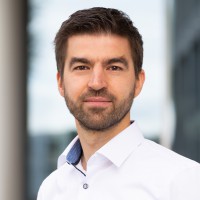David A. Vermaas obtained a PhD degree in chemical engineering (Membrane Science & Technology, Kitty Nijmeijer) from University of Twente and Wetsus in 2014, after being educated in hydrology and water management (BSc/MSc, Wageningen University). He was involved in the company REDstack, and later co-founded the company AquaBattery, developing flow batteries using water and salt gradients. David was appointed as assistant professor in 2016, developing the work on Electrochemical Flow Systems at TU Delft. David visited the Berkeley National Lab for a sabbatical visit in 2019-2020, and closely collaborates with several universities in companies. His current projects include an ERC Starting Grant on mass transport enhancement strategies, the ReCoVR project on selective CO capture, and he is coordinating the MELODY project on developing a membraneless H2-Br2 flow battery.
The Electrochemical Flow Systems lab of David Vermaas is focusing on engineering and studying electrochemical flow cells, such as water electrolyzers, CO2 conversion, CO2 capture and flow batteries. The EFS lab is embedded in the Transport Phenomena group and part of the e-refinery institute, and the work of David’s lab revolves about multiphase or multi-ionic mass transport – around gas bubbles, in diffusion boundary layers, in ion exchange membranes, etc. – in electrochemical systems and the separations of their products. The goal is to enhance the mass transport and to prepare new electrochemical technologies for upscaling and practical application



